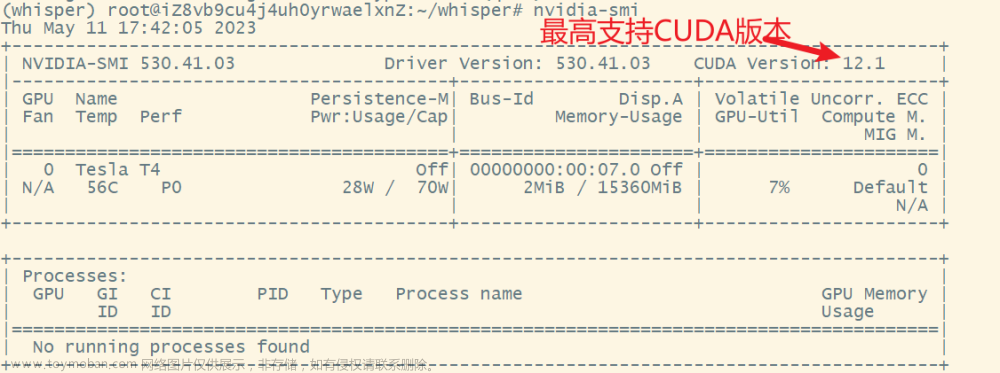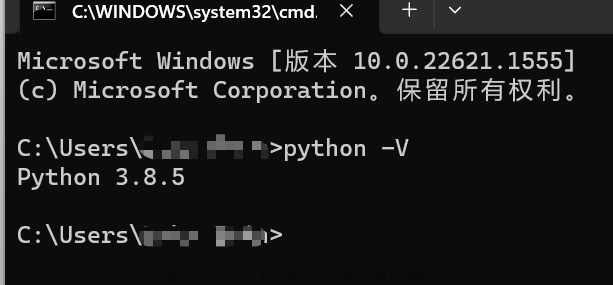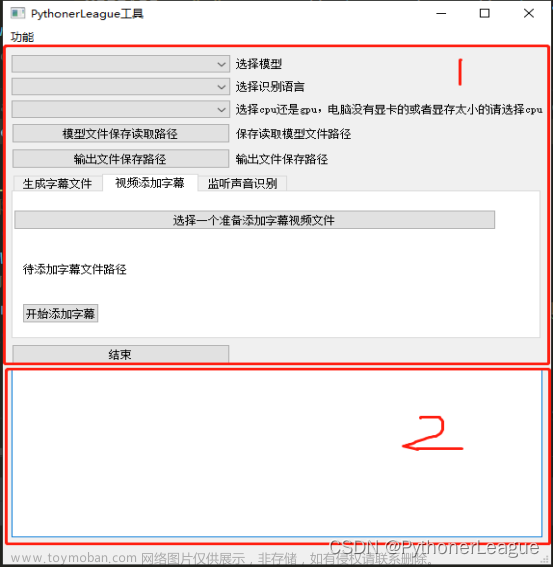whisper.cpp是一个C++编写的轻量级开源智能语音识别库,是基于openai的开源python智能语音模型whisper的移植版本,依赖项少,内存占用低,性能更优,方便作为依赖库集成的到应用程序中提供语音识别功能。
以下基于whisper.cpp的源码利用C++ api来开发实例demo演示读取本地音频文件并转成文字。
项目结构
whispercpp_starter
- whisper.cpp-v1.5.0
- src
|- main.cpp
- CMakeLists.txtCMakeLists.txt
cmake_minimum_required(VERSION 3.15)
# this only works for unix, xapian source code not support compile in windows yet
project(whispercpp_starter)
set(CMAKE_CXX_STANDARD 14)
set(CMAKE_CXX_STANDARD_REQUIRED ON)
add_subdirectory(whisper.cpp-v1.5.0)
include_directories(
${CMAKE_CURRENT_SOURCE_DIR}/whisper.cpp-v1.5.0
${CMAKE_CURRENT_SOURCE_DIR}/whisper.cpp-v1.5.0/examples
)
file(GLOB SRC
src/*.h
src/*.cpp
)
add_executable(${PROJECT_NAME} ${SRC})
target_link_libraries(${PROJECT_NAME}
common
whisper # remember to copy dll or so to bin folder
)main.cpp
#include <cmath>
#include <fstream>
#include <cstdio>
#include <string>
#include <thread>
#include <vector>
#include <cstring>
#include "common.h"
#include "whisper.h"
#if defined(_MSC_VER)
#pragma warning(disable: 4244 4267) // possible loss of data
#endif
// Terminal color map. 10 colors grouped in ranges [0.0, 0.1, ..., 0.9]
// Lowest is red, middle is yellow, highest is green.
const std::vector<std::string> k_colors = {
"\033[38;5;196m", "\033[38;5;202m", "\033[38;5;208m", "\033[38;5;214m", "\033[38;5;220m",
"\033[38;5;226m", "\033[38;5;190m", "\033[38;5;154m", "\033[38;5;118m", "\033[38;5;82m",
};
// 500 -> 00:05.000
// 6000 -> 01:00.000
std::string to_timestamp(int64_t t, bool comma = false)
{
int64_t msec = t * 10;
int64_t hr = msec / (1000 * 60 * 60);
msec = msec - hr * (1000 * 60 * 60);
int64_t min = msec / (1000 * 60);
msec = msec - min * (1000 * 60);
int64_t sec = msec / 1000;
msec = msec - sec * 1000;
char buf[32];
snprintf(buf, sizeof(buf), "%02d:%02d:%02d%s%03d", (int)hr, (int)min, (int)sec, comma ? "," : ".", (int)msec);
return std::string(buf);
}
int timestamp_to_sample(int64_t t, int n_samples)
{
return std::max(0, std::min((int)n_samples - 1, (int)((t * WHISPER_SAMPLE_RATE) / 100)));
}
// helper function to replace substrings
void replace_all(std::string& s, const std::string& search, const std::string& replace)
{
for (size_t pos = 0; ; pos += replace.length())
{
pos = s.find(search, pos);
if (pos == std::string::npos) break;
s.erase(pos, search.length());
s.insert(pos, replace);
}
}
// command-line parameters
struct whisper_params
{
int32_t n_threads = std::min(4, (int32_t)std::thread::hardware_concurrency());
int32_t n_processors = 1;
int32_t offset_t_ms = 0;
int32_t offset_n = 0;
int32_t duration_ms = 0;
int32_t progress_step = 5;
int32_t max_context = -1;
int32_t max_len = 0;
int32_t best_of = whisper_full_default_params(WHISPER_SAMPLING_GREEDY).greedy.best_of;
int32_t beam_size = whisper_full_default_params(WHISPER_SAMPLING_BEAM_SEARCH).beam_search.beam_size;
float word_thold = 0.01f;
float entropy_thold = 2.40f;
float logprob_thold = -1.00f;
bool speed_up = false;
bool debug_mode = false;
bool translate = false;
bool detect_language = false;
bool diarize = false;
bool tinydiarize = false;
bool split_on_word = false;
bool no_fallback = false;
bool output_txt = false;
bool output_vtt = false;
bool output_srt = false;
bool output_wts = false;
bool output_csv = false;
bool output_jsn = false;
bool output_jsn_full = false;
bool output_lrc = false;
bool print_special = false;
bool print_colors = false;
bool print_progress = false;
bool no_timestamps = false;
bool log_score = false;
bool use_gpu = true;
std::string language = "en";
std::string prompt;
std::string font_path = "/System/Library/Fonts/Supplemental/Courier New Bold.ttf";
std::string model = "models/ggml-base.en.bin";
// [TDRZ] speaker turn string
std::string tdrz_speaker_turn = " [SPEAKER_TURN]"; // TODO: set from command line
std::string openvino_encode_device = "CPU";
std::vector<std::string> fname_inp = {};
std::vector<std::string> fname_out = {};
};
struct whisper_print_user_data
{
const whisper_params* params;
const std::vector<std::vector<float>>* pcmf32s;
int progress_prev;
};
std::string estimate_diarization_speaker(std::vector<std::vector<float>> pcmf32s, int64_t t0, int64_t t1, bool id_only = false)
{
std::string speaker = "";
const int64_t n_samples = pcmf32s[0].size();
const int64_t is0 = timestamp_to_sample(t0, n_samples);
const int64_t is1 = timestamp_to_sample(t1, n_samples);
double energy0 = 0.0f;
double energy1 = 0.0f;
for (int64_t j = is0; j < is1; j++)
{
energy0 += fabs(pcmf32s[0][j]);
energy1 += fabs(pcmf32s[1][j]);
}
if (energy0 > 1.1 * energy1)
{
speaker = "0";
}
else if (energy1 > 1.1 * energy0)
{
speaker = "1";
}
else
{
speaker = "?";
}
//printf("is0 = %lld, is1 = %lld, energy0 = %f, energy1 = %f, speaker = %s\n", is0, is1, energy0, energy1, speaker.c_str());
if (!id_only)
{
speaker.insert(0, "(speaker ");
speaker.append(")");
}
return speaker;
}
void whisper_print_progress_callback(struct whisper_context* /*ctx*/, struct whisper_state* /*state*/, int progress, void* user_data)
{
int progress_step = ((whisper_print_user_data*)user_data)->params->progress_step;
int* progress_prev = &(((whisper_print_user_data*)user_data)->progress_prev);
if (progress >= *progress_prev + progress_step)
{
*progress_prev += progress_step;
fprintf(stderr, "%s: progress = %3d%%\n", __func__, progress);
}
}
void whisper_print_segment_callback(struct whisper_context* ctx, struct whisper_state* /*state*/, int n_new, void* user_data)
{
const auto& params = *((whisper_print_user_data*)user_data)->params;
const auto& pcmf32s = *((whisper_print_user_data*)user_data)->pcmf32s;
const int n_segments = whisper_full_n_segments(ctx);
std::string speaker = "";
int64_t t0 = 0;
int64_t t1 = 0;
// print the last n_new segments
const int s0 = n_segments - n_new;
if (s0 == 0)
{
printf("\n");
}
for (int i = s0; i < n_segments; i++)
{
if (!params.no_timestamps || params.diarize)
{
t0 = whisper_full_get_segment_t0(ctx, i);
t1 = whisper_full_get_segment_t1(ctx, i);
}
if (!params.no_timestamps)
{
printf("[%s --> %s] ", to_timestamp(t0).c_str(), to_timestamp(t1).c_str());
}
if (params.diarize && pcmf32s.size() == 2)
{
speaker = estimate_diarization_speaker(pcmf32s, t0, t1);
}
if (params.print_colors)
{
for (int j = 0; j < whisper_full_n_tokens(ctx, i); ++j)
{
if (params.print_special == false)
{
const whisper_token id = whisper_full_get_token_id(ctx, i, j);
if (id >= whisper_token_eot(ctx))
{
continue;
}
}
const char* text = whisper_full_get_token_text(ctx, i, j);
const float p = whisper_full_get_token_p(ctx, i, j);
const int col = std::max(0, std::min((int)k_colors.size() - 1, (int)(std::pow(p, 3) * float(k_colors.size()))));
printf("%s%s%s%s", speaker.c_str(), k_colors[col].c_str(), text, "\033[0m");
}
}
else
{
const char* text = whisper_full_get_segment_text(ctx, i);
printf("%s%s", speaker.c_str(), text);
}
if (params.tinydiarize)
{
if (whisper_full_get_segment_speaker_turn_next(ctx, i))
{
printf("%s", params.tdrz_speaker_turn.c_str());
}
}
// with timestamps or speakers: each segment on new line
if (!params.no_timestamps || params.diarize)
{
printf("\n");
}
fflush(stdout);
}
}
bool output_txt(struct whisper_context* ctx, const char* fname, const whisper_params& params, std::vector<std::vector<float>> pcmf32s)
{
std::ofstream fout(fname);
if (!fout.is_open())
{
fprintf(stderr, "%s: failed to open '%s' for writing\n", __func__, fname);
return false;
}
fprintf(stderr, "%s: saving output to '%s'\n", __func__, fname);
const int n_segments = whisper_full_n_segments(ctx);
for (int i = 0; i < n_segments; ++i)
{
const char* text = whisper_full_get_segment_text(ctx, i);
std::string speaker = "";
if (params.diarize && pcmf32s.size() == 2)
{
const int64_t t0 = whisper_full_get_segment_t0(ctx, i);
const int64_t t1 = whisper_full_get_segment_t1(ctx, i);
speaker = estimate_diarization_speaker(pcmf32s, t0, t1);
}
fout << speaker << text << "\n";
}
return true;
}
int main(int argc, char** argv)
{
const std::string model_file_path = "./ggml-base.en.bin";
const std::string audio_file_path = "sample.wav"; // should be wav 16bit format
// set whisper params
whisper_params params;
params.model = model_file_path;
params.fname_inp.emplace_back(audio_file_path);
// whisper init
struct whisper_context_params cparams;
cparams.use_gpu = params.use_gpu;
struct whisper_context* ctx = whisper_init_from_file_with_params(params.model.c_str(), cparams);
if (ctx == nullptr)
{
fprintf(stderr, "error: failed to initialize whisper context\n");
return 3;
}
// initialize openvino encoder. this has no effect on whisper.cpp builds that don't have OpenVINO configured
whisper_ctx_init_openvino_encoder(ctx, nullptr, params.openvino_encode_device.c_str(), nullptr);
for (int f = 0; f < (int)params.fname_inp.size(); ++f)
{
const auto fname_inp = params.fname_inp[f];
const auto fname_out = f < (int)params.fname_out.size() && !params.fname_out[f].empty() ? params.fname_out[f] : params.fname_inp[f];
std::vector<float> pcmf32; // mono-channel F32 PCM
std::vector<std::vector<float>> pcmf32s; // stereo-channel F32 PCM
if (!read_wav(fname_inp, pcmf32, pcmf32s, params.diarize))
{
fprintf(stderr, "error: failed to read WAV file '%s'\n", fname_inp.c_str());
continue;
}
// print system information
{
fprintf(stderr, "\n");
fprintf(stderr, "system_info: n_threads = %d / %d | %s\n",
params.n_threads * params.n_processors, std::thread::hardware_concurrency(), whisper_print_system_info());
}
// print some info about the processing
{
fprintf(stderr, "\n");
if (!whisper_is_multilingual(ctx))
{
if (params.language != "en" || params.translate)
{
params.language = "en";
params.translate = false;
fprintf(stderr, "%s: WARNING: model is not multilingual, ignoring language and translation options\n", __func__);
}
}
if (params.detect_language)
{
params.language = "auto";
}
fprintf(stderr, "%s: processing '%s' (%d samples, %.1f sec), %d threads, %d processors, %d beams + best of %d, lang = %s, task = %s, %stimestamps = %d ...\n",
__func__, fname_inp.c_str(), int(pcmf32.size()), float(pcmf32.size()) / WHISPER_SAMPLE_RATE,
params.n_threads, params.n_processors, params.beam_size, params.best_of,
params.language.c_str(),
params.translate ? "translate" : "transcribe",
params.tinydiarize ? "tdrz = 1, " : "",
params.no_timestamps ? 0 : 1);
fprintf(stderr, "\n");
}
// run the inference
{
whisper_full_params wparams = whisper_full_default_params(WHISPER_SAMPLING_GREEDY);
wparams.strategy = params.beam_size > 1 ? WHISPER_SAMPLING_BEAM_SEARCH : WHISPER_SAMPLING_GREEDY;
wparams.print_realtime = false;
wparams.print_progress = params.print_progress;
wparams.print_timestamps = !params.no_timestamps;
wparams.print_special = params.print_special;
wparams.translate = params.translate;
wparams.language = params.language.c_str();
wparams.detect_language = params.detect_language;
wparams.n_threads = params.n_threads;
wparams.n_max_text_ctx = params.max_context >= 0 ? params.max_context : wparams.n_max_text_ctx;
wparams.offset_ms = params.offset_t_ms;
wparams.duration_ms = params.duration_ms;
wparams.token_timestamps = params.output_wts || params.output_jsn_full || params.max_len > 0;
wparams.thold_pt = params.word_thold;
wparams.max_len = params.output_wts && params.max_len == 0 ? 60 : params.max_len;
wparams.split_on_word = params.split_on_word;
wparams.speed_up = params.speed_up;
wparams.debug_mode = params.debug_mode;
wparams.tdrz_enable = params.tinydiarize; // [TDRZ]
wparams.initial_prompt = params.prompt.c_str();
wparams.greedy.best_of = params.best_of;
wparams.beam_search.beam_size = params.beam_size;
wparams.temperature_inc = params.no_fallback ? 0.0f : wparams.temperature_inc;
wparams.entropy_thold = params.entropy_thold;
wparams.logprob_thold = params.logprob_thold;
whisper_print_user_data user_data = { ¶ms, &pcmf32s, 0 };
// this callback is called on each new segment
if (!wparams.print_realtime)
{
wparams.new_segment_callback = whisper_print_segment_callback;
wparams.new_segment_callback_user_data = &user_data;
}
if (wparams.print_progress)
{
wparams.progress_callback = whisper_print_progress_callback;
wparams.progress_callback_user_data = &user_data;
}
// examples for abort mechanism
// in examples below, we do not abort the processing, but we could if the flag is set to true
// the callback is called before every encoder run - if it returns false, the processing is aborted
{
static bool is_aborted = false; // NOTE: this should be atomic to avoid data race
wparams.encoder_begin_callback = [](struct whisper_context* /*ctx*/, struct whisper_state* /*state*/, void* user_data) {
bool is_aborted = *(bool*)user_data;
return !is_aborted;
};
wparams.encoder_begin_callback_user_data = &is_aborted;
}
// the callback is called before every computation - if it returns true, the computation is aborted
{
static bool is_aborted = false; // NOTE: this should be atomic to avoid data race
wparams.abort_callback = [](void* user_data) {
bool is_aborted = *(bool*)user_data;
return is_aborted;
};
wparams.abort_callback_user_data = &is_aborted;
}
if (whisper_full_parallel(ctx, wparams, pcmf32.data(), pcmf32.size(), params.n_processors) != 0)
{
fprintf(stderr, "%s: failed to process audio\n", argv[0]);
return 10;
}
}
// output stuff
{
printf("\n");
// output to text file
if (params.output_txt)
{
const auto fname_txt = fname_out + ".txt";
output_txt(ctx, fname_txt.c_str(), params, pcmf32s);
}
}
}
// whisper release
whisper_print_timings(ctx);
whisper_free(ctx);
return 0;
}注:
- whisper支持的模型文件需要自己去下载
- whisper.cpp编译可以配置多种类型的增强选项,比如支持CPU/GPU加速,数据计算加速库
- whisper.cpp的编译cmake文件做了少量改动,方便集成到项目,具体可参看demo
源码
whispercpp_starter文章来源:https://www.toymoban.com/news/detail-828523.html
本文由博客一文多发平台 OpenWrite 发布!文章来源地址https://www.toymoban.com/news/detail-828523.html
到了这里,关于开源C++智能语音识别库whisper.cpp开发使用入门的文章就介绍完了。如果您还想了解更多内容,请在右上角搜索TOY模板网以前的文章或继续浏览下面的相关文章,希望大家以后多多支持TOY模板网!











